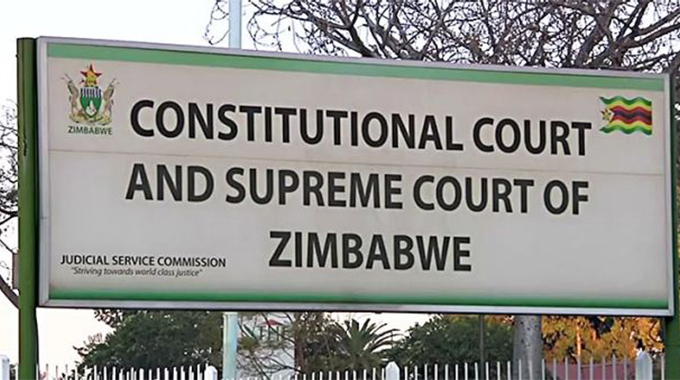
Scott Panashe Mamimine
NR Barber, a mining firm, in an urgent chamber application is seeking the Constitutional Court’s permission to challenge last month’s Supreme Court ruling which converted United States dollar debts to the Zimdollar at a rate of 1:1 in line with Statutory Instrument 33 of 2019.
Alternatively, the company seeks leave to approach the Constitutional Court in terms of section 85(1) of the constitution, challenging the decision of the Supreme Court; that section allows anyone in their own interest, in the interest of someone unable to act for themselves, or in the public interest to approach “a court” alleging that a fundamental right has been infringed and the court may grant an appropriate relief including a declaration of rights and an award of compensation.
The mining firm, which is a legal person, contends that the judgment has an effect of violating its property rights as enshrined under Section 71 of the Constitution of Zimbabwe, the section on property rights in the declaration of rights.
The Applicant has also advanced arguments that its rights under Section 56 (1) of the Constitution guaranteeing a fair hearing were breached as well as its right under the fair hearing provisions in sections 69 (2) and 69 (3). It also argues that the Supreme Court erred in proceeding on a “false basis being that the validity of Statutory Instrument SI33 of 2019 was not challenged and was consequently not an issue before it”.
However the legal reality is that the appeal has no prospects for the following reasons:-
The Supreme Court already made a finding that the constitutionality of s 4( I)( d) of S.I. 33/19 was not in dispute and this is clear from the way the grounds of appeal were couched in the Supreme Court Notice of Appeal.
A person has a right to appeal against a decision of the Supreme Court on a constitutional matter only.
A decision of the Supreme Court on a non-constitutional issue is unappealable because the Court has no jurisdiction to review such a decision.
Section 167 of the Constitution makes it clear that the Constitutional Court is the highest court on all constitutional matters. Section 176(1)(b) of the Constitution provides that the Court decides only constitutional matters and issues connected with decisions on constitutional matters. Section 332 of the Constitution goes further to define a constitutional matter as a matter in which there is an issue involving the interpretation, protection or enforcement of the Constitution.
Rule 32(3)(c) of the Constitutional Court Rules requires that an application for leave to appeal to the Court must contain or have attached to it a statement setting out clearly and concisely the constitutional matter raised in the decision sought to be appealed against.
The founding affidavit supporting the application must verify the fact that the cause of action arises from a decision of the subordinate court concerned on a constitutional matter or an issue connected with a decision on a constitutional matter.
If the subordinate court had no constitutional matter before it to hear and determine, no grounds of appeal can lie to the Constitutional Court as a litigant cannot allege that the subordinate court misdirected itself in respect of a matter it was never called upon to decide for the purposes of the resolution of the dispute between the parties. See Nyamande & Anor v Zuva Petroleum CCZ 8/15.
A similar finding was made by Gwaunza jcc (as she then was) in Rushesha & Ors v Dera & Ors CCZ 24/17. Discussing the import of s 169(1) of the Constitution, her ladyship at pp 10-11 of the cyclostyled judgment had this to say:
“The import of this provision needs no elaboration. Only where the Supreme Court determines a constitutional issue, may one appeal to this Court for a final determination. Because the Supreme Court in this matter did not determine any constitutional issue, the decision it rendered was final and not appealable.
Since courts are not expected to, and invariably do not, render judgments that cannot be put into effect — which are in other words a brutum fulmen — a purported appeal against the effect of a judgment of the Supreme Court on a non-constitutional issue is in reality an appeal envisaged in s 169(1). That is, a final judgment that is not appealable no matter how well disguised any such purported appeal may be.
It does not escape notice that in seeking to have the Supreme Court judgment overturned under the guise of an appeal to this Court, the appellants are, in effect, attempting to revive, and reinstate, the judgment of the High Court, which was in their favour.
What is sought would be both manifestly irregular, and bad at law.”
The sad reality is that the Constitutional Court has no jurisdictional competency to hear this matter.
– Scott Panashe Mamimine is a legal practitioner at Uriri Attorneys — At-Law. He writes here in his personal capacity.
